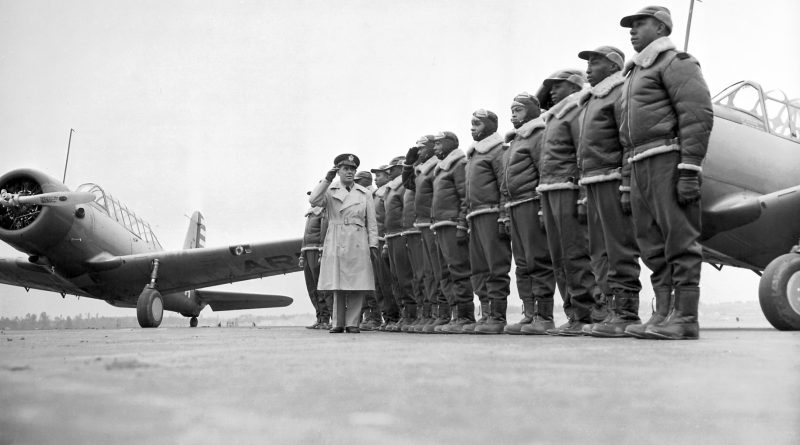May 31 in U.S. military history
1862: As Gen. George McClellan’s Army of the Potomac attempts to cross the swollen Chickahominy River just east of Richmond, Va., Gen. Joseph Johnston’s Confederate Army of Northern Virginia strikes. Over the next two days, the Union inflicts 6,000 casualties and the Confederates 5,000 while both sides claim victory in the Battle of Seven Pines (or the Battle of Fair Oaks Station to Yankees), which was the bloodiest conflict since Shiloh two months before.
President Jefferson Davis replaces a wounded Johnston with Gen. Robert E. Lee (at the time serving as military advisor to the president), and McClellan is far more timid after seeing his dead and wounded soldiers and loses his initiative. Richmond is saved.
1900: While the bloody Chinese campaign against foreigners and Christians known as the Boxer Rebellion intensifies, Marines from the battleship USS Oregon (BB-3) and cruiser USS Newark (C-1) arrive at the Chinese capital of Peking (now Beijing) to protect American and foreign legations.
1943: As the Allied attack begins on the island of Pantelleria, halfway between Tunisia and Sicily, the 99th Pursuit Squadron – the first all-black fighter squadron of the U.S. military – arrives in Tunisia. In two days, the famed “Tuskegee Airmen” will fly their first combat mission, and some 11,000 Italian (and a few dozen German) troops will become the first force in history to surrender from air attacks alone. The 99th is commanded by Lt. Col. (future Gen.) Benjamin O. Davis, Jr. Davis, who will go on to become the Air Force’s first black general. His father Benjamin Sr. was the U.S. military’s first black general.
1944: When German forces hit Pvt. Furman L. Smith’s company near Lanuvio, Italy, wounding several soldiers, the outfit is ordered to fall back. Smith refuses to leave the casualties. He places the wounded in shell holes and holds his ground during the German counterattack. He is killed, but not before leaving a string of dead and wounded Germans. Smith is posthumously awarded the Medal of Honor.
1945: On Okinawa’s “Hen Hill,” PFC Clarence B. Craft launches an incredible one-man attack against Japanese defenders when his five-man reconnaissance force is wounded by grenades and pinned down. He exposes himself to intense enemy fire, shooting at anything that moves. Craft advances single-handedly up the hill, against defenses that previously beat back battalion-sized U.S. forces. Once he reaches the crest of the hill, his fellow soldiers advance, supplying him with cases of grenades and a satchel charge, which he used to seal off a cave containing an unknown number of enemies. Craft continued pumping rounds into Japanese soldiers, and silenced an enemy machine gun position. Dozens of Japanese soldiers die at the hands of Craft, and his charge against the critical position of Hen Hill leads to the collapse of the entire Japanese line.
1951: When a “numerically superior and fanatical hostile force, accompanied by heavy artillery, mortar, and machine gun fire” attacks Hill 420 near Wontong-Ni, Korea, the American platoon is forced to withdraw after expending their ammunition. A wounded Cpl. Rodolfo P. Hernandez of the 187th Regimental Combat Team remains behind, pumping deadly fire into the attackers. When his rifle becomes inoperable, Hernandez fixes his bayonet and charges into the enemy, killing six before falling from grenade, bayonet, and gunshot wounds. His one-man attack stuns the enemy, enabling his fellow soldiers to counterattack and retake the position.
Cpl. Hernandez is so grievously wounded that the first medic to reach him thought he had died. He doesn’t regain consciousness for an entire month, and Pres. Harry S. Truman awards him the the Medal of Honor in 1952.
1994: The United States announced that it is no longer “aiming” (preprogrammed computer targeting) nuclear weapons at Russian targets.
2014: Nearly five years after walking away from his post in eastern Afghanistan, the Taliban hands Sgt. Bowe Bergdahl over to a team of Delta Force operators. The former prisoner of war is exchanged for five high-ranking Taliban officials in a highly controversial deal between the U.S. government and the Afghan terrorist group. Soldiers from Bergdahl’s unit state that six soldiers died attempting to locate the missing soldier, and numerous other deaths have been attributed to the reallocation of resources during the search for Bergdahl.
